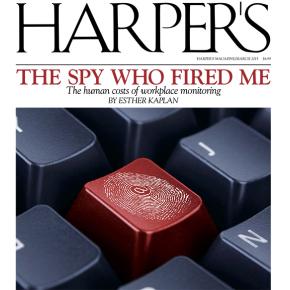Más ciudades deben tomar las riendas sobre el salario mínimo
Source:...
Source: El Diario
Ete mes, el alcalde de la ciudad de Nueva York Bill de Blasio anunció un sueldo mínimo garantizado de $15 para todos los empleados del gobierno municipal para fines de 2018. Esta es una gran victoria para más de 50,000 empleados en toda la ciudad que pasan apuros para mantener a su familia, incluidos aquellos directamente en planilla y decenas de miles que trabajan en organizaciones sin fines de lucro contratadas por la ciudad.
A diferencia de Seattle y Los Ángeles, donde los funcionarios municipales tienen el poder para aumentar el sueldo mínimo de todos los empleados de su ciudad, el alcalde De Blasio no puede aumentar los salarios de todos los trabajadores de la ciudad de Nueva York unilateralmente. El gobernador Andrew Cuomo y la legislatura estatal tienen ese poder. Los esfuerzos del gobernador por incrementar el salario mínimo a $15 se están viendo obstaculizados por el Senado estatal, que está controlado por los republicanos.
La decisión de De Blasio de aumentar los sueldos de los empleados municipales es un paso independiente crucial hacia una ciudad más equitativa y debe inspirar a otras ciudades en el país. También refleja el poder e ímpetu de un movimiento revolucionario encabezado por los trabajadores que exigen salarios más altos en todo el país.
Incluso mientras los gobiernos estatales y el gobierno federal arrastran los pies con respecto al asunto inevitable de un salario mínimo decente para las familias trabajadoras en los Estados Unidos, el audaz paso que dio De Blasio muestra que las ciudades pueden y deben tomar las riendas del problema.
El aumento del salario mínimo por el alcalde se produjo poco después de su anuncio el mes pasado de que a los 20,000 empleados no sindicalizados de la ciudad se les otorgaría seis semanas de licencia remunerada por maternidad/paternidad y hasta 12 semanas, cuando se combine con licencias existentes. El alcalde ahora ha pasado a negociar los mismos beneficios con los sindicatos de la ciudad. Nuevamente, los trabajadores del sector privado de la ciudad de Nueva York deben esperar a que Albany o Washington, D.C. tome medidas con respecto a licencia familiar pagada para todos.
Las medidas recientes del alcalde De Blasio apoyan su objetivo de sacar a 800,000 neoyorquinos de la pobreza durante los próximos diez años. Más de 20 por ciento de la población de la ciudad vive en condiciones de pobreza, un enorme sector de una ciudad normalmente relacionada con extraordinaria riqueza.
En los dos últimos años se ha visto un ímpetu sin paralelo de parte de los propios trabajadores exigiendo sueldos decentes, desde la ciudad de Nueva York hasta Los Ángeles y Chicago, lo que resultó en aumentos salariales para los trabajadores de negocios de comida rápida y otros grupos.
Los trabajadores no esperan pacientemente a los funcionarios públicos; se están organizando de manera sin precedente. Alcaldes progresistas como De Blasio están respondiendo con políticas sensatas, mientras los funcionarios que no desean responder ya saben lo que se viene. Ciudades como Los Ángeles, Nueva York y Chicago están preparando el terreno y mostrando que es posible actuar independientemente de gobiernos estatales y el gobierno federal.
Además, varios estados han promulgado leyes que aumentan el salario mínimo por encima del mísero estándar de $7.25 por hora. Actualmente se realizan campañas en 14 estados y cuatro ciudades para aumentar el sueldo mínimo y los estándares a favor de los trabajadores. El ímpetu se está convirtiendo en una avalancha que tendrá consecuencias profundas en las elecciones presidenciales del 2016.
Casi la mitad de los trabajadores del país ganan menos de $15 por hora y 43 millones se ven forzados a trabajar cuando están enfermos o tienen la necesidad urgente de cuidar a alguien, o de lo contrario, ponen en peligro su empleo. Es el momento de que las ciudades escuchen a sus trabajadores y pasen por encima de la pasividad estatal y federal a fin de permitir que millones de estadounidenses que trabajan muy duro mantengan a sus familias.
-JoEllen Chernow es directora de la campaña a favor del salario mínimo y licencia pagada por enfermedad en el Center for Popular Democracy.
ABQ call center workers get more family-friendly workplace rules
More than workers at Albuquerque’s T-Mobile call center began working under new workplace rules this week. The company...
More than workers at Albuquerque’s T-Mobile call center began working under new workplace rules this week. The company has been under increasing pressure to modify work rules to give workers greater flexibility to balance family and work requirements.
The company operates a nationwide call center near Jefferson and Menaul in Albuquerque and recently announced plans to add more employees top the more than 1,500 local workers already employed at the site.
News of the new workplace rules came from the Communications Workers of America which has been leading efforts with local organizations for these changes:
For Immediate Release July 2, 2015
Public Pressure Pushes T-Mobile US to Provide Fairer Paid Parental Leave Policy
WASHINGTON, D.C. – Responding to growing public pressure and local government initiatives, T-Mobile US announced this week that it would be adopt a paid parental leave program. The company also said it would end an oppressive policy that required call center workers to be on the phone 96.5% of their work time, leaving them with virtually no time for follow up on customer issues or to make changes in customers’ accounts as needed.
This is great news for workers who often must struggle to balance family and career. It comes as workers at T-Mobile US and a coalition of community supporters in cities like Albuquerque, N.M., step up efforts to restore a fair workweek and achieve other improvements for workers.
Members of TU, the union of T-Mobile workers, the Communications Workers of America and many organizations, including the Center for Popular Democracy, OLÉ and other coalition partners, have been raising concerns about unfair scheduling and other issues for workers at T-Mobile US and other employers. Workers want a voice in the decisions that affect them in their workplace — not just the ones that the company selectively picks and chooses. That’s why T-Mobile US workers are joining TU.
T-Mobile US’s initial scheduling changes were made just as the Albuquerque City Council was moving forward to consider a proposal to implement paid sick leave and scheduling improvements. The Albuquerque coalition hosted a town hall meeting on irregular scheduling, where Albuquerque City Council members pledged to support their fight for a fair workweek including the right to take sick leave without retaliation.
A recent National Labor Relations Board (NLRB) decision found T-Mobile guilty of engaging in illegal employment policies that prevented workers from even talking to each other about problems on the job. The judge ordered the company to rescind those policies and inform all 46,000 employees about the verdict.
Parental leave is a good first step toward helping workers balance their career and family responsibilities. But workers want real bargaining rights and the right to fairly choose union representation. That’s what T-Mobile must realize.
Source: The New Mexico Political Report
How Trump’s Pick To Police Wall Street Endangers The Economy

How Trump’s Pick To Police Wall Street Endangers The Economy
As the country reeled from news that Donald Trump Jr. apparently tried to collude with Russia against former Democratic...
As the country reeled from news that Donald Trump Jr. apparently tried to collude with Russia against former Democratic presidential contender Hillary Clinton, his father, President Donald Trump, announced a decision that will have ripple effects on the American economy for years to come.
Trump, distressing advocates of tough financial rules and pro-worker monetary policy, on Monday nominated veteran Wall Street lawyer Randal Quarles to serve as the Federal Reserve’s top finance regulator.
Read the full article here.
Group in Allentown rallies for immigration reform
The Morning Call - April 6, 2013 - ...
The Morning Call - April 6, 2013 - Whitehall Township resident Belkys Luvon doesn't expect all of America's undocumented immigrants to be granted U.S. citizenship overnight. That's not what she and other advocates of comprehensive reform of the country's immigration laws are lobbying for — or even what they'd want.
But Luvon, who said she came to the United States legally from the Dominican Republic 29 years ago, feels it only fair that undocumented immigrants be offered legal means of gaining citizenship.
Basically, what proponents call "a path to citizenship" should be for those who have lived here, abided by the law, worked hard, raised families and otherwise contributed to the well-being of countless communities, Luvon said.
She and other Lehigh Valley residents, as well as organizers from other areas, staged a public rally for immigration reform Saturday at Allentown's Cedar Creek Park. Only a few dozen people were on hand in the early going — the event got off to a late start — but support for the cause regionally, as well as nationally, is strong, according to Tony Perlstein of the Center for Popular Democracy inWashington, D.C., which supports reform.
In addition to the event in Allentown, "speak outs" for reform were scheduled in Norristown and other parts of Pennsylvania, and across the country, Perlstein said.
Luzon — who operates a consulting business helping immigrants attain citizenship, as well as with preparing income tax returns and starting businesses of their own — said she wants more people, regardless of status, to have the kind of opportunity granted to her.
"I consider myself lucky, thank God," she said, having followed her mother to America. "I believe it is fair, after living here and working hard" — and staying out of trouble with the law, she stressed — for people to have a path to citizenship as envisioned by PresidentBarack Obama, Luzon said.
Luzon objects to the term "illegal immigrants."
"No human being is illegal," she said.
Reform supporter Erika Sutherland, a Muhlenberg Collegeprofessor, said she hopes for a comprehensive package of reforms that streamlines existing programs for attaining citizenship and gives people a way to get on the path toward citizenship.
Among the goals, she said, is "an equitable comprehensive citizenship" for the estimated 11 million undocumented immigrants, the vast majority of whom are "people contributing to our community and [who] want nothing more than the ability to stay and work."
"We are a nation of immigrants," Sutherland concluded. "We can do better."
With a group of Republican and Democratic senators working on comprehensive reform, the Center for Popular Democracy expects tens of thousands of supporters at a demonstration Wednesday in Washington in favor of reform, Perlstein said.
Source
John Williams named to take over key New York Fed president post
Fed Up, a group of economists and former Fed officials, and other organizations have been critical of the selection...
Fed Up, a group of economists and former Fed officials, and other organizations have been critical of the selection process as well as the approach the central bank has taken to policy-making. "The NY Fed should go back to the drawing board and draw from the deep, diverse, and highly qualified list of candidates provided to it by the Fed Up coalition (as well as surveying the views of other public interest groups)," the Economic Policy Institute's Josh Bivens said in a recent statement. "This is too important a decision to make on institutional autopilot."
Read the full article here.
The New York Times Comes Out Against Fed Interest Rate Hike
Progressive activists opposed to a Federal Reserve interest...
Progressive activists opposed to a Federal Reserve interest rate hike gained an influential new ally on Labor Day: The New York Times editorial board.
In a Monday editorial, entitled “You Deserve a Raise Today. Interest Rates Don’t,” the Times argued that if the Federal Reserve raises interest rates in the near term, it could slow job creation at a time when there are still too few jobs to generate substantial wage growth.
“Wage stagnation is a clear sign that the economy is not at full employment, which means it needs loose monetary policy, not tightening,” the Times wrote.
The Times called the Fed a “crucial player” in efforts to undo the decades-long trend of worker wages not growing in sync with the broader economy. The paper noted that from 1973 to 2014, median worker pay rose 7.8 percent while overall productivity increased by 72 percent, a finding published Wednesday in a report from the liberal-leaning Economic Policy Institute.
An interest rate hike would exacerbate, rather than reverse, this trend by slowing wage growth, the Times editorial suggested. The paper also said that an interest rate hike would send “the wrong signal of economic health,” undermining efforts by advocacy groups to raise workers’ wages through measures like increasing the minimum wage.
It is unclear what impact the Times’ editorial will have on the Fed’s decision-making, but it is a high-profile boost for progressive activists and economists, who have long argued that a Fed interest rate hike should be tied to wage growth that is about twice as high as it is currently.
These activists, led by the Center for Popular Democracy's Fed Up campaign, note that even as the official unemployment rate declined to 5.1 percent in August -- its lowest level since April 2008 -- wages have grown 2.2 percent in the past 12 months, only marginally outpacing increases in living costs. Since wages rise when demand for workers is high enough that businesses must compete for labor, many economists attribute ongoing sluggish wage growth to the number of people who are underemployed or have given up looking for work -- figures masked by the low official jobless rate.
The Fed Up campaign sent a memo to newspaper editorial boards across the country on Sept. 1, asking them to oppose an interest rate hike in 2015. The memo, a copy of which was obtained by The Huffington Post, employs arguments that resemble those used by The New York Times. The memo warned that an interest rate hike in 2015 would "leave millions in considerable andunnecessary economic distress and would exacerbate troubling longer-term trends in wages and incomes for the vast majority of American workers and their families."
Fed Up campaign director Ady Barkan celebrated the editorial, but stopped short of claiming credit for it.
"The New York Times Editorial Board is right," Barkan said in a statement. "Workers do deserve a raise! The data is crystal clear – stagnant wages and the lack of inflation mean that the Fed shouldn’t raise rates anytime soon. The Fed Up campaign is of course glad that the Times and other leading voices are speaking up about this issue."
Fed officials have signaled for months that they plan to raise the current near-zero interest rates before the year’s end, but William Dudley, president of the Federal Reserve Bank of New York, recently indicated that a September increase may be too soon in light of market fluctuations. The Federal Open Market Committee, the central bank body charged with adjusting key interest rates, will report on whether it plans to raise rates on September 17.
Supporters of an interest rate hike argue that it is necessary to head off excessive price inflation, which, along with maintaining full employment, is part of the Fed’s dual mandate.
Source: Huffington Post
The Spy Who Fired Me
Harpers Magazine - March 2015, by Esther Kaplan - Last March, Jim Cramer, the host of CNBC’s Mad Money, devoted part of...
Harpers Magazine - March 2015, by Esther Kaplan - Last March, Jim Cramer, the host of CNBC’s Mad Money, devoted part of his show to a company called Cornerstone OnDemand. Cornerstone, Cramer shouted at the camera, is “a cloud-based-software-as-a-service play” in the “talent-management” field. Companies that use its platform can quickly assess an employee’s performance by analyzing his or her online interactions, including emails, instant messages, and Web use. “We’ve been managing people exactly the same way for the last hundred and fifty years,” Cornerstone’s CEO, Adam Miller, told Cramer. With the rise of the global workforce, the remote workforce, the smartphone and the tablet, it’s time to “manage people differently.” Clients include Virgin Media, Barclays, and Starwood Hotels.
Cornerstone, as Miller likes to tell investors, is positioning itself to be “on the vanguard of big data in the cloud” and a leader in the “gamification of performance management.” To be assessed by Cornerstone is to have your collaborative partnerships scored as assets and your brainstorms rewarded with electronic badges (genius idea!). It is to have scads of information swept up about what you do each day, whom you communicate with, and what you communicate about. Cornerstone converts that data into metrics to be factored in to your performance reviews and decisions about how much you’ll be paid.
Miller’s company is part of an $11 billion industry that also includes workforcemanagement systems such as Kronos and “enterprise social” platforms such as Microsoft’s Yammer, Salesforce’s Chatter, and, soon, Facebook at Work. Every aspect of an office worker’s life can now be measured, and an increasing number of corporations and institutions—from cosmetics companies to car-rental agencies—are using that informationto make hiring and firing decisions. Cramer, for one, is bullish on the idea: investing in companies like Cornerstone, he said, “can make you boatloads of money literally year after year!”
A survey from the American Management Association found that 66 percent of employers monitor the Internet use of their employees, 45 percent track employee keystrokes, and 43 percent monitor employee email. Only two states, Delaware and Connecticut, require companies to inform their employees that such monitoring is taking place. According to Marc Smith, a sociologist with the Social Media Research Foundation, “Anythingyou do with a piece of hardware that’s provided to you by the employer, every keystroke, is the property of the employer. Personal calls, private photos—if you put it on the company laptop, your company owns it. They may analyze any electronic record at any time for any purpose. It’s not your data.”
With the advent of wireless connectivity, along with a steep drop in the price of computer processors, electronic sensors, GPS devices, and radio-frequency identification tags, monitoring has become commonplace.Many retail workers now clock in with a thumb scan. Nurses wear badges that track how often they wash their hands. Warehouse workers carry devices that assign them their next task and give them a time by which they must complete it. Some may soon be outfitted with augmented-reality devices to more efficiently locate products.
In industry after industry, this data collection is part of an expensive, high-tech effort to squeeze every last drop of productivity from corporate workforces, an effort that pushes employees to their mental, emotional, and physical limits; claims control over their working and nonworking hours; and compensates them as little as possible, even at the risk of violating labor laws. In some cases, these new systems produce impressive results for the bottom line: after Unified Grocers, a large wholesaler, implemented an electronic tasking system for its warehouse workers, the firm was able to cut payroll expenses by 25 percent while increasing sales by 36 percent. A 2013 study of five chain restaurants found that electronic monitoring decreased employee theft and increased hourly sales. In other cases, however, the return on investment isn’t so clear. As one Cornerstonereport says of corporate social-networking tools.“ There is no generally accepted model for their implementation or standard set of metrics for measuring R.O.I.” Yet this has hardly slowed adoption.
Read the full article here.
City-issued IDs give immigrants access as Trump tightens rules
New Haven, Conn., was the first city to issue a municipal ID in 2007 following the fatal stabbing of a 36-year-old...
New Haven, Conn., was the first city to issue a municipal ID in 2007 following the fatal stabbing of a 36-year-old undocumented immigrant while he cashed a check, according to a 2013 report by the Center for Popular Democracy on municipal ID programs.
Read the full story here.
Schumer retira oferta sobre muro fronterizo de negociaciones sobre “DACA”

Schumer retira oferta sobre muro fronterizo de negociaciones sobre “DACA”
“Se sienten muy traicionados porque los demócratas habían hecho una promesa muy específica… no hay ninguna garantía, y...
“Se sienten muy traicionados porque los demócratas habían hecho una promesa muy específica… no hay ninguna garantía, y sabemos que la estrategia de votar por el Dream Act como una ley separada ha fracasado año tras año, no es una promesa que se traduce a un alivio para los Soñadores”, explicó Ana María Archila, del grupo Centro para una Democracia Popular.
Lea el artículo completo aquí.
Climate Jobs for All
Other groups like the Sierra Club, Demos, 350.org, the Center for Popular Democracy, the Labor Network for...
Other groups like the Sierra Club, Demos, 350.org, the Center for Popular Democracy, the Labor Network for Sustainability, and the US Climate Action Network have also been discussing the climate jobs guarantee (CJG).
Read the full article here.











2 months ago
2 months ago